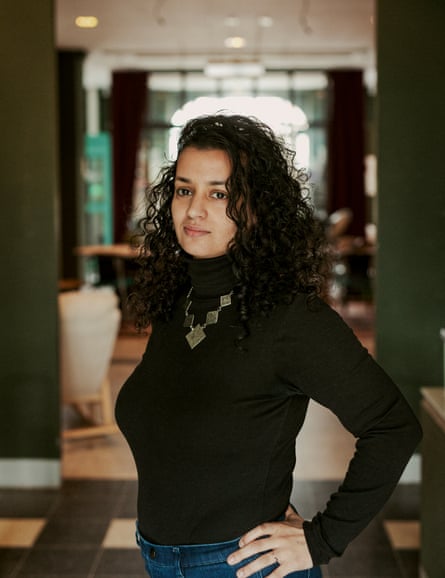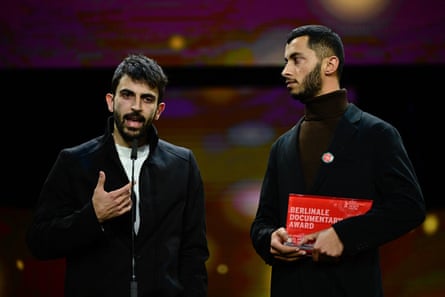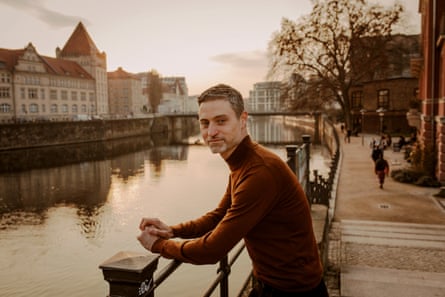- Useful Links
- Learning Strategies
- German on the Web

Konjunktiv I
Konjunktiv i [subjunctive i], use for indirect speech & reporting thoughts/beliefs/opinions.
1. Reported Speech (Indirect Discourse)
One can report speech either directly (repeating the person’s exact words) or indirectly . In the latter case, one usually uses Subjunctive I. Thus, if a woman says “Ich kann tanzen wenn ich will,” I can tell someone else what she said by saying either
The former is direct speech; the latter is indirect speech, and uses Subjunctive I.
Imperatives are reported using solle or möge :
Er sagte ich solle / möge gehen [reporting the order “Geh!”] He said I should go
2. Reporting Thoughts, Beliefs, Opinions
This is an extension of Subjunctive I’s basic function of reporting speech:
Er dachte, sie sei vom Mars He thought she was from Mars Er glaubte, sie werde ihn entführen He believed she would abduct him
Forms- Present Tense
Remove the -en from the infinitive and add weak verb simple past endings:
This is the simplest German tense to form. The only irregular verb is sein , which does not eat its cereal and is therefore irregular all the time. It omits the first and third person singular -e:
Forms- Other Tenses
Future : Subjunctive I of “werden” + infinitive.
Past : Subjunctive I of “haben” or “sein” + past participle
Note that there is only one past subjunctive tense to correspond to all three indicative past tenses (present perfect, simple past and past perfect). Thus the direct quotations
“Ich lachte”; “Ich habe gelacht”; “Ich hatte gelacht”
will all be represented in Subjunctive I as:
Er/sie sagt, er/sie habe gelacht
In German, unlike in English, the tense of the indirect discourse corresponds to the tense of the direct discourse (what the speaker actually said), regardless of when it is being reported. Let’s say I’m covering Madonna for a German audience. She says, “I’m hungry” (Present Tense)
If she says “I was hungry” (Past Tense):
Replacement of Subjunctive I by Subjunctive II
1. Identity of Subjunctive I and Present Indicative
The first person singular and plural, and the third person plural forms of Present Subjunctive I are identical with the corresponding forms of the Present Indicative. Therefore, in order to avoid ambiguity, those forms of Subjunctive I are avoided, and Subjunctive II is used instead. As a result, Subjunctive I is used almost exclusively in the third person singular , and more generally with the verb sein , where its forms are distinctive.
2. Spoken German
In spoken German, both Subjunctives are becoming increasingly rare. Subjunctive I is replaced by the Indicative or otherwise by Subjunctive II most of the time, even when there is no ambiguity.
3. To Express Doubt
One may choose to report speech in Subjunctive II (even when there is no ambiguity) to indicate that one doubts the truth of the statement. For example, if Madonna and Billy Ray Cyrus both claim to be intelligent, one may report her statement in Subj. I, to indicate that it might be true, and his statement in Subj. II, to express one’s doubt about it:
Madonna sagt, sie sei intelligent. Billy Ray Cyrus sagt, er wäre intelligent.
Special Uses of Subjunctive I
1. Third Person Requests, Suggestions, or Wishes
This use occurs particularly in formal writing, and in older texts
A special case of this is the phrase sei es , translated as be it
Sei es Zufall oder Notwendigkeit, jedenfalls existiert auf der Erde intelligentes Leben. Be it chance or necessity; in any case intelligent life exists on earth.
Finally, one sometimes sees Subj. I used in this way after damit :
Damit Barney ganz tot sei , wurde er in kleine Stückchen zerhackt. So that Barney should (would) be entirely dead, he was chopped up into little pieces.
2. Imaginary Comparisons (“As If”)
The conjunctions als ob and als wenn , both meaning as if , introduce comparisons that are imaginary rather than real. They can be followed by Subj. I or II.
Es sieht aus, als ob das Radium nicht weniger geworden sei/wäre . It looks as if the radium had not become any less.
Als can be used by itself in this sense, in which case the word order is different:
Es scheint, als könne/könnte man schneller als mit Lichtgeschwindigkeit reisen. It seems as if one could travel faster than the speed of light.
Occasionally, such unreal comparisons appear without als , als ob or als wenn :
Es hat den Anschein, das Elektron wisse/wüßte , wo es ist. It appears as if the electron knew where it was.
NEW!! Ask & discuss on facebook
- nouns overview
- nouns gender
- nouns plural
- masculine weak nouns
- possessive determiners nominative
- possessive determiners accusative
- possessive determiners dative
- possessive determiners genitive
- verbs overview
- present regular verbs
- wissen (also vs. kennen)
- separable prefix verbs
- inseparable prefix verbs
- modal verbs - present tense
- modal verbs - past tense
- conversational past
- conversational past - regular verbs
- conversational past of irregular verbs with haben
- conversational past of irregular verbs with sein
- cases overview
- nominative case
- accusative case
- telling time
- days of the week
- months and seasons
- two-way prepositions
- pronouns overview
- nominative pronouns
- accusative pronouns
- dative pronouns
- relative pronouns
- demonstrative pronouns
- conjunctions overview
- coordinating conjunctions
- subordinating conjunctions
- interrogatives
- adjectives overview, adjective endings
- adjectives after ein-words
- adjectives after der-words
- adjectives unpreceded
- comparative and superlative
- adverbs of time, frequency, quantity, intensity
- adverbs of manner and place
- adverbs of narration
- punctuation
- word formation
- false cognates
- flavoring particles
- spelling reform

Search THIS SITE

Konjunktiv I is formed from the present tense of the verb (the 1st form, hence the name Konjunktiv I ).
Typically only the third person singular form is used in Konjunktiv I; when German speakers want to talk about other forms in the subjunctive, they use Konjunktiv II .
The present tense of Konjunktiv I is formed by adding an - e to the stem of the infinitive:
Sein , however, is used in Konjunktiv I in all of its forms, not just in the third person singular.
Konjunktiv I in the present tense is also used to express the future:
The past tense of Konjunktiv I is formed by using the auxiliary sei or habe and the past participle form of the verb.

Dornröschen and company are whiling the day away with a juicy gossip-fest, and the young women are reporting what they heard around the castle today. From each pair of sentences below, select the one that is more appropriate to use when – as is typical for gossip – some of the sources of gossip wish to remain anonymous or are a bit shady ...
Die Schlosseinwohner schauen fern.
From each pair of sentences below, select the correct phrasing in Konjunktiv I to find out what happened today according to the evening news. And they'd better be careful and avoid outright accusations!

- ?subject=Website comment/question" title="Send email comment or question.">
Looking for a job as a language teacher? Click here.
Copy this link!
Or share it on social media!
Indirect speech in German
Sign up for free to get all information about private lessons and our available group courses (A1, A2, B2, B2, C1, C2)
Lesson content
Check our FAQs for the quickest support.
Did not find your answer?
We offer both private lessons and organized group courses
Sign up for free to get all available courses or contact one of our teachers yourself!

Free trial lesson!
Split the lesson costs over multiple students.
Sign up with a group of friends or colleagues.

The indirect speech is used in order to report what somebody said. The indirect speech consist of a introduction and a dependent clause in the subjunctive I. There are some typical introductions like:
- Sie sagt(e) , sie habe die Aufgabe alleine gelöst. (She said, she had solved all tasks alone)
- Sie meint(e) , sie habe den Kuchen nicht alleine gegessen. (She said, she didn't eat the cake alone)
- Sie behauptet(e) , dass der Regen braun gewesen sei. (She claimed, that the rain was brown)
- Er erklärt(e) , dass alle Gespenster echt seien. (He explained, that all ghosts would be real)
- Er erzählt(e) , dass er die beste Note habe. (He told, that he had the best grades)
Lesson outline
- 1. Three steps how to form the direct speech into the indirect speech:
- 1.1. Change the pronoun, because you are talking about somebody
- 1.2. Use the subjunctive form of the verb
- 1.3. Sometimes you have to change the time and the place
- 2. Indirect speech within questions
- 3. Usage of subjunctive II in the indirect speech
- 4. Exercises
- 4.1. Exercise of indirect speech (Subjunctive II)
- 4.2. Exercise of indirect speech (Subjunctive I)
Three steps how to form the direct speech into the indirect speech:
Have a question.
Take online language lessons with a professional teacher
- Native & verified teachers
- Free trial lesson
- Learning materials included

Group lessons!

Donatella P.

Krisztina B.
Vasiliki P.

Stefania R.

Emmanuel A.
1. change the pronoun, because you are talking about somebody.
- Sie sagt: „ Ich habe alle Aufgaben alleine gelöst“ (direct speech) - She said: "I solved all tasks alone"
- Sie sagt, sie habe die Aufgaben alleine gelöst. (indirect speech) - She said, she had solved all tasks alone
2. Use the subjunctive form of the verb
- Sie sagt: „Er hat alle Aufgaben alleine gelöst “ (direct speech) - She said: "He solved all tasks alone"
- Sie sagt, er habe die Aufgaben alleine gelöst . (indirect speech) - She said, that he had solved all tasks alone
3. Sometimes you have to change the time and the place
- Sie sagt: „Sie sind heute hier gewesen“ (direct speech) - She said: "They were here today"
- Sie sagt, sie seien gestern dort gewesen. (indirect speech) - She said, they have been there yesterday
- Sie sagt, er habe die Aufgaben alleine gelöst. (direct speech) - She says, he had solved the taks alone
- Sie sagt, dass er alle Aufgaben alleine gelöst habe . (indirect speech) - She said, that he had solved all tasks alone
Indirect speech within questions
We form the indirect speech as a question by including the question word (for example "wie")
- Sie fragt: „ Wie hat es geschmeckt?“ (direct speech) - She asks: "How did it taste?"
- Sie fragt, wie es geschmeckt habe. (indirect speech) - She asks, how it has tasted
Exactly, as in the topic of the indirect questions, we are also allowed to use the word " ob " at the position of the question word.
- Sie fragt: „Hat es geschmeckt?“ (direct speech) - She asks: "Did it taste good?"
- Sie fragt, ob es geschmeckt habe. (indirect speech) - She asks, whether it tasted good
Usage of subjunctive II in the indirect speech
In general we use the subjunctive I to form the indirect speech. But what is if the subjunctive I is identical to the indicative form of a verb? In this case we use the subjunctive II in order to differentiate the indirect speech from the direct speech.
- Sie sagte: „Sie haben viel zu Abend gegessen" (direct speech) - She said: "They ate too much for dinner"
- Sie sagte, sie haben viel zu Abend gegessen . (indirect speech with subjunctive I) - She said, they ate too much for dinner
- Sie sagte, sie hätten viel zu Abend gegessen. (indirect speech with subjunctive II) - She said, they had been eating too much for dinner
If the subjunctive II is still not different from the indicative, then you have to use "würde".
- Sie sagte: „Sie gehen viel“ - She said: "They walk a lot"
- Sie sagte, sie gingen viel. - She said, they walked a lot
- Sie sagte, sie würden viel gehen. - She said, they would walk a lot
Exercise of indirect speech (Subjunctive II)
Exercise of indirect speech (subjunctive i), what our students say.
Unlike in other platforms, all our teachers are manually verified by our professional team. Trust in the experiences of our students.
My name is Christina and I provide fun German&and French language lesson for children and adult beginners or intermediate who want to strengthen their language skills, improve the grammar knowledge, enrich the vocabulary and get into the German culture! I can teach in English or French! I had experince in teaching German, English and French to foreign people so I do have a lot of useful learning material I can provide you to make it easier!
Teaching methodology
Communication
Punctuality
Internet connection
Learning materials

Hi! I am Maaike, a Dutch primary school teacher. Every day I'm doing by best to teach the Dutch language well to the childeren, but also other languages such as English and Spanish. I have more than 12 years of experience as a teacher, in the Netherlands and abroad, to young and old! In the Netherlands I have experience in each grade, so I know exactly how the Dutch language is given in primary education. This can certainly help children, but also adults who want to learn the Dutch language in a correct way, having a good basic knowledge is the most important part of learning a new language. I lived in Spain for 3 years where I taught English to Spanish children and adults. During that period I also followed an intensive language course to learn the Spanish language. Currently I am learning Nepali through Skype. I know what it is like to learn a new language, what it involves and how the learning process works. I will first discuss with you what you would like to achieve by following the language lessons and what your needs are. Maybe it's just speaking skills, or grammar or listening skills, or a combination. In addition, I want to use my creativity to apply methods that work best for you, personalized language classes. :) My goal is to give you the feeling after each class that you've come one step closer to your personal goal! Feel free to request a trial class, so we can see what I can do for you and if my way of teaching suits you. See you soon! :)

The best language teacher my daughter has had! She is a kind and friendly teacher. I feel like she keeps the lesson pace going and focused. Highly recommend Maaike. :-)

Hi, I am Christin!
After training as a pastry chef and studying business administration, I traveled a lot and discovered my interest in languages. To find out more about teaching languages, I decided on further training at the Goethe Institute and completed it. During the Goethe Institute "Learn to teach German" course I was able to give individual language lessons and actively support the examination preparation for the Goethe certificate.
My lessons are needs-oriented. That means that learning goals are discussed with you and based on your level of knowledge. Whether grammar, sentence structure, pronunciation, expression or the practice of communication situations: German as a foreign and second language classes are flexible and take place in a group or one-to-one lessons with individual support and are based on your wishes and requirements. The teaching of content and topics takes place according to the respective language level. Building vocabulary, grammar and means of speaking are structured and conveyed logically building on each other. Let's get to know each other in a free trial class. I am looking forward to meeting you!

I’m Rebecca, originally from the UK but have been living in Germany for many years. I love making learning fun and have successfully helped my students improve their English in a pleasant atmosphere. I have experience helping my learners prepare for exams, job interviews, presentations etc. Whether business English, general conversational English or to help you prepare for a particular situation, feel free to book a trial lesson and we can discuss your needs and how I can help you! I am CELTA and TESOL qualified and have many years of experience. I’m looking forward to meeting you!

Great teacher and very nice person. She helped me for my PhD interview, making me feeling confident with english. Highly recommended!

This review was written by a coLanguage team member during a manual screening of this teacher profile.

My name is Karolin and since the beginning of 2017, while I was still living in Chile, I've been giving online classes. I really enjoy my work and it gives me the privilage to get to know people from all around the world, which is amazing.
Both in English and in German, I teach classes for beginners and advanced students. I speak Spanish fluently, but as I lived in Chile for around 5 years, both my pronounciation and my choice of words are influenced by that. I learned and teach the european Spanish but only for beginners (A1/A2). But if you don't mind the chilenean influence, I do teach to a higher level as well.
If you'd like to get to know me and my teaching methods, just contact me and we will do a free trial lesson (please do NOT by a lesson before the trial lesson, not every teacher is good for every student). See you soon!
I am so happy to be taking German lessons with Karolin. She is an amazing teacher, I honestly cannot believe how much I have improved in the 6 months I have been taking lessons with her. She made me feel confortable from the very beginning, she is always on time and somehow makes me look forward to every lesson. Thanks for everything Karo!

I am French living in Lisbon in Portugal. I have lived in different countries such as England, the United States and India. It gave me some experience of learning a foreign language and teaching it. I am passionate about different cultures and try to share my love for French culture with you in a lively way. I adapt to the needs of the students, whether to improve their oral, written, prepare for an exam or a job interview. I prioritize the conversation to allow the student to "unblock" and have fun speaking the language. I write down the vocabulary and grammar that the student lacks to express himself. Learning a foreign language is, in my view, above all through cultural curiosity. We want to learn a language because we want to live in the country, travel there or get to know it better. We feel attracted. It is its Culture that motivates us in our learning: music, film, text, literature, way of being and cultural differences forming "another world". This means that learning is not just about learning a list of words and grammar lessons, as is taught too often in school. Practice again and again through conversation, books, music, movies and above all the pleasure of speaking and listening.
I adapt the student's personal work according to their available time and their objective (conversation, deadline for an exam, scheduled trip, etc.). I am at your disposal for any further information. See you soon,
Florence is a lovely teacher. She is very flexible as to the kind of lesson you need. I have really enjoyed my lessons and look forward to them each week.

I am a German native speaker who loves languages and am passionate about teaching others. I work as language teacher in a school, teach adults at the German Culture Center and prepare my students for all types of official language exams. I love my job and always seek to make it as much fun as possible.
My experience with Melanie has been very positive, Melanie is a very qualified teacher and you can tell that from the beginning: very professional, very good methodology, diversity in material, etc. A real one on one experience as she focused together with learning of language in identification and correction of student weaknesses. My kid is engaged with her classes as he says are useful and fun, his progress in learning German has been noticed by all. I also like her flexibility to have classes during the weekends, that is a great emergency door. I am happy !! Highly recommended!!!

Hello, my name is Katerina und I’m a qualified German teacher with 8 years teaching experience. I would like to help you to master the German language. You will get your personal online lesson via Skype. If you are interested in learning this world language, just contact me – I’m looking forward to getting to know you!
I recommended everyone to choose this teacher ! she's explaining pretty clear and she have a lot of patient ! she helped me a lot to improve my German skills !
Katerina B. Thank you so much George. I am very happy that our lessons helped you!
I recommend Her; My teacher Melanie is a dynamic and friendly teacher, very knowledgeable, flexible and open to discussions on any subject. available to check my exercises and flexible regarding class time slots. Very nice experience! She immediately understood my goals and was able to help me improve my skills. I recommend her to anyone who wants to take and pass their exams and improve their German skills.
Melanie A. Hello Douaa, thank you. I am happy that I could help you and I had fun. I wish you all the best.
Very expert and nice teacher. Organized, professional, she made my German lessons a pleasant experience. Customized learning materials according to you needs and interests. Highly recommended!
Katerina B. Dear Silvia, thank you very much!
Hallo :) I'm a German language teacher with a Bachelor and Master degree in German and with many years of teaching experience. I was born and lived in Switzerland for many years and grew up in a bilingual family, because of that I speak German, Swiss German, Croatian and English :)
- ABOUT THE CLASS - I offer German language lessons for A1, A2, B1, B2 level and they include everything you need: grammar, speaking, listening audio, reading, writing and for some fun: games and role plays :) This is ideal for students who want actively participate and speak more, learn new words and exercise the grammar.
All learning materials and exercises are included and will be provided during the lesson. The learning material is from various books: Schritte International, Menschen, Sicher im Alltag und Beruf, Begegnungen, ....
If you wish to have only conversational lessons, I can arrange this also for you (only available for B1 and B2 level).
* IMPORTANT: coLanguage shows only my general availability, if you want to book a lesson, please sent me a message with your availability and language level, and I will contact you as soon as possible with more informations :)
she is very flexible about rescheduling the classes. she gives a lot of exercises that fit my level and make sure to correct me if I miss pronouncing some words or have difficulty to read them.

I am a 29 year old female, native English speaker from Cape Town, South Africa.
I am a fun, enthusiastic and creative individual who has over 10 years of experience in teaching .I have taught in various parts of the world, South Africa, Thailand, Columbia, Peru, Europe and UK just to name a few. I have taught both children and adults. I am passionate about teaching and find inspiration in witnessing the growth students experience within my online classes.
I feel that my experience as an au-pair, home school teacher as well as home-room teacher at various schools and online has taught me the value of improvising, taking initiative and empowering young individuals to enable each child within my care to feel inspired and to know their own unique and individual strengths. I feel that my training in psychology is truly something that has helped with every individual I have worked with. My biggest commitment as a teacher is to teach children and adults to know their worth and to instill confidence within each individual, so that they are able to realize their potential and feel encouraged to learn more.
I have found myself wishing to broaden my experience in teaching and I am currently in the position where I’m looking for new challenges in the field, and ultimately self-development. I feel that teaching online is the perfect position that will allow me to contribute to the lives of students I teach and something that will bring a great amount of reward in my life as well as that of the individuals I teach.
I am patient and make sure each student understands the concepts before moving forward.My lessons are fun and engaging and allow students opportunity to practice what they have learnt. Zoom or Skype is used and customized lessons can be planned based on the individuals level and needs. I am passionate about educating and ensuring students reach their full potential. I look forward to meeting you soon.
Sherri is a South African English teacher who is ready to meet your objectives. She has a fun set up with a lot of learning materials especially fun ones for kids! She's had experience with different age groups so she can really adapt to different students.

my name is Veronika and I am a student in Florence at the academy of fine arts. I have been in Italy for three years and I really like the Italian language. In school i learned english and during journeys i used to speak a lot of english so i'm also able to teach in english. I am from Germany so I am a German native speaker. I have already taught German to some of my friends and would love to teach my language to more people as well. At the beginning I would like to do grammar lessons and the most used words to deepen the basic knowledge of the language. Then I will continue to have conversations in German to increase vocabulary and to give confidence in dialogue and in any case in speaking the language in real scenarios. The most important thing by learning a new language is to learn it through hearing and speaking. Being difficult at first to formulate sentences will then become easier and easier and thus you arrive at a fluent and confident way to speak the new language. For myself I learned Italian three years ago with this method so I also know what it is like to learn a language and I can help you with my teaching to learn German that way.
I can not wait to start! greetings Veronika
Veronika is a very good language teacher. She was on time and she gave me helpfull advices to improve my german speaking, during interesting conversations.

Being a native English speaker with a 120-hour premier TEFL certificate and a double major in communications, my lessons deliver value that help you reach your language goals.
Having worked in Europe, Asia and the Middle East, my classes come with an international flavor. My students have described my teaching style as being nurturing and effective.
Sign up for your trial lesson today!

Become a teacher
Teach your favorite language. Anywhere. Anytime.
Take language lessons with a native teacher
Request a free trial lesson with a teacher of your choice!

How do you use the subjunctive in indirect speech in German? - Easy Learning Grammar German
- The conjunction dass (meaning that ) begins the clause containing the indirect speech and the verb goes to the end of the clause.
- If you want to express a possible situation in English, for example, I would be happy if you came , you use ‘if’ followed by the appropriate tense of the verb. In German you use the conjunction wenn (meaning if, whenever ) followed by a subjunctive form of the verb. Note that the verb ALWAYS goes to the end of a clause beginning with wenn.
- selbst wenn
- wie , expressing uncertainty
Schnelles Wortquiz
Quiz Review
Ergebnis: 0 / 5

- Leaderboard
- Translate Page
German Lessons
Reported speech.
You may have occasionally seen sentences like the following: Sie sagte, er spreche sehr gut Deutsch.
You may think, er spreche? What is going on here?
This structure is an example of what is known as the indirekte Rede (in English "reported speech"), which is used more often but not exclusively in written German and formal reporting or storytelling. Sentences like this will involve the verb sagen or other verbs used to talk about what people think and say, such as antworten, äußern, behaupten , berichten , denken , erklären , fragen , glauben , or meinen .
In instances where someone's speech or thoughts are reported, you may see the subjunctive ( Konjunktiv I ) employed, like in the sentence above. For regular verbs, some of the endings are indistinguishable from other tenses, but some are very different. Here is the complete Konjunktiv I conjugation of the verb sprechen , and here are examples of how it would be used with reported speech:
Er sagte, ich spreche sehr gut Deutsch . ("He said I speak very good German.") Er sagte, du sprechest sehr gut Deutsch . ("He said you speak very good German.") Er sagte, er/sie spreche sehr gut Deutsch . ("He said she/he speaks very good German.") Er sagte, wir sprechen sehr gut Deutsch . ("He said we speak very good German.") Er sagte, ihr sprechet sehr gut Deutsch . ("He said you speak very good German.") Er sagte, Sie/sie sprechen sehr gut Deutsch . ("He said they speak very good German.")
In the following examples, you can see the same conjugation pattern with a few other verbs:
Der König hatte sie nicht eingeladen, The King hadn't invited her, weil es hieß, sie habe ein böses Herz. because it was said she had an evil heart. Caption 19, Märchen - Sagenhaft - Dornröschen Play Caption
Er verband ihm das Bein, He bandaged his leg, fragte ihn nicht, wohin er wolle , woher er käme . did not ask him where he was going , where he had come from. Captions 7-8, Janoschs Traumstunde - Der Wettlauf zwischen Hase und Igel Play Caption
Der hat mir erzählt, er sei echt nur... he told me that he really just is ... Er fahre eigentlich Mercedes He actually drives a Mercedes und kleide sich deshalb so schräg ... and the reason he dresses so weirdly... Captions 30-31, Yello-Biographie - Ein Leben für die Avantgarde Play Caption
You may have noticed that kommen is irregular. One other irregular verb that you have likely seen conjugated like this is sein :
Von daher werde ich nicht tanzen, Therefore I won't be dancing, so dass ich behaupten kann, ich sei ein brillianter Tänzer, so I can claim that I'm a brilliant dancer und niemand kann es konterkarieren. and nobody can disprove it. Captions 25-26, Deutsche Sporthilfe - Ball des Sports Play Caption
Hans erklärte, er sei nicht verzaubert, Hans explained that he was not bewitched, sondern wirklich ein Igeljunge. but really a hedgehog boy. Caption 71, Märchen - Sagenhaft - Hans mein Igel Play Caption
Sie behaupteten, sie seien Weber eines seltenen, They claimed that they were weavers of a rare, besonders schönen Stoffes. especially beautiful cloth. Caption 25, Märchen - Sagenhaft Des Kaisers neue Kleider Play Caption
Further Learning You will likely come across examples of reported speech on Yabla German from time to time, but structures like Sie sagt, dass er Italienisch spricht are simply more common in spoken German. When you do see an example that uses Konjunktiv I , check to see if it's a regular or irregular verb in terms of its conjugation.
Signup to get Free German Lessons sent by email

You May Also Like
- For the Sake of Learning German
- Apologizing and Expressing Regret and Sympathy
- Das Perfekt with sein
- German Expressions of Disbelief and Frustration
- In a German Restaurant
- Finances in the New Year
Indirect speech
Whenever you want to report to a friend of yours what someone else has said to you before or even if you simply repeat what you have just said a few minutes ago, you use the indirect speech. The reported information is introduced with ‘dass’, a side-clause-conjunction. Let me clarify with the help of a few examples:
"Ich komme fünf Minuten später." I will be five minutes late. Ich habe gesagt, dass ich fünf Minuten später komme. I have said that I will be five minutes late.
Vater: “Ich bin um fünf zuhause.” I will be home at five. Sohn: Mein Vater hat gesagt, dass er um fünf zuhause ist.
Don’t bother with the change to Konjunktiv I or II that you might find in some German textbooks at this level. That will be covered in B2 or higher. For now go with the Präsens tense.
Not much more to say here. Remember that side-clauses need their verbs (the ones with the personal ending) at the very end. And also note the change in the second example from ich to er. This change should become obvious to you as soon as you read the translations. The following phrases can be considered introductions of a report of what you think, believe or see etc.:
Ich denke, dass ... I think that... Ich glaube, dass ... I believe that... Ich sehe, dass ... I see that...
dass-sentences are so called content-sentences. That means that the dass-sentence contains the content of the word that precedes it. In „ Ich denke, dass... “ the dass-sentence contains the content of the „denke“, meaning the actual thoughts.
This topic is covered in: A2-L25
Konjunktiv – the Subjunctive Mood in German Grammar
What is the german subjunctive.
The German subjunctive (Konjunktiv) is a grammatical mood. The default mood is the indicative (der Indikativ); this presents information as pure fact. In contrast, the subjunctive shows that the information being presented has an element of fantasy, impossibility, doubt or a general 'unreal' quality.
There are two types of subjunctive in German. The Subjunctive I (Konjunktiv I) is only really used for indirect speech in news reports. As a learner, it’s usually enough to have passive knowledge of the Subjunctive I. In contrast, an active knowledge of the Subjunctive II (Konjunktiv II) is a must; it expresses wishes, guesses, polite requests and hypothetical situations ( Konditionalsätze ).
Master the German subjunctive with Lingolia, then put your knowledge to the test in the exercises.
What is the Subjunctive II?
The Subjunctive II (Konjunktiv II) is the verb form that we use for polite requests, wishes, suggestions, theories and hypothetical situations.
Even if you’ve never learned the Subjunctive II explicitly, you’ve most likely used it without realising. This is because the Subjunctive II appears in common phrases like:
Often, we can translate the Subjunctive II with English phrases like would, should and could.
Ich wünschte , ich hätte einen Plan für nach meinem Studium. Ich weiß gar nicht, was ich machen möchte .
Vielleicht könntest du erst mal ein Jahr freinehmen ?
Das würde ich gern machen . Wenn ich ein Jahr frei hätte , würde ich die Welt bereisen .
Das wäre schön! Ich hätte gern so ein Auslandsjahr gemacht , aber ich hatte nie die Chance.
Die Planung wäre bestimmt kompliziert. Ich wüsste nicht, wo ich anfangen sollte !
Meine Schwester hat ein Auslandsjahr gemacht. Du könntest mir ihr sprechen .
Stimmt! Hätte ich nur früher daran gedacht . Würdest du mir ihre Telefonnummer geben ?
Na klar! Sie würde sich bestimmt freuen , dir zu helfen.
When to use the Subjunctive II in German
We use the German Subjunctive II (Konjunktiv II) for:
- sentences with wenn (see conditional clauses )
- polite requests
- suggestions
- theories and guesses
- regrets and reimagining the past (past subjunctive)

How to conjugate the Subjunctive II in German
We form the Subjunctive II (Konjunktiv II) differently depending on whether we are referring to a present situation or a past one.
Present Subjunctive II: würde + infinitive
In the present Subjunctive II, most verbs are conjugated with the subjunctive of werden + infinitive.
Present Subjunctive II: modal verbs
We conjugate the modal verbs (as well as a handful of others) in the Subjunctive II by adding the subjunctive endings to the simple past stem and adding an umlaut.
Note: the modal verbs sollen and wollen do not take umlauts in the Subjunctive II, meaning that their Subjunctive II forms are identical to their past tense forms (ich sollte/wollte, du solltest/wolltest, er/sie/es sollte/wollte, wir sollten/sollten, ihr solltet/wolltet, sie sollten/wollten).
We can conjugate many irregular verbs in the same way as modal verbs in the Subjunctive II (sometimes with and sometimes without the umlaut, depending on the verb).
However, the würde conjugation is generally more common.
Past Subjunctive II: hätte/ wäre + past participle
If we want to talk about a situation in the past, we use the subjunctive of haben/sein + past participle . This is similar to the English would have done/said/asked …
Past Subjunctive II: modal verbs
We conjugate modal verbs in the past Subjunctive II as follows: form of hätte + infinitive + modal verb infinitive. This is similar to the English should have, could have or must have done/said/asked …
What is the Subjunctive I?
The Subjunctive I (Konjunktiv I) is the verb form we use in news reports when statements are repeated as indirect speech .
The Subjunctive I allows the speaker to distance themselves from the information being repeated.
When to use the Subjunctive I
We use the Subjunctive I for:
- indirect speech , but usually only in news reports. In everyday speech, we use the indicative to repeat statements.
- some idiomatic expressions.
Given its limited use, as a learner it’s usually enough to be able to recognise the Subjunctive I rather than use it actively.
How to conjugate the Subjunctive I in German
The Subjunctive I (Konjunktiv I) is almost always used in the 3rd person singular; we form this by removing the final -n from the infinitive.
The verb sein is unique in the Subjunctive I: ich sei, du sei(e)st, er sei, wir seien, ihr sei(e)t, sie seien.
In addition to the present tense, we can also use the Subjunctive I in the present perfect and the future tenses by using the Subjunctive I of the help verbs.
Avoiding the Subjunctive I
We prefer to use the Subjunctive II instead of the Subjunctive I:
- when the Subjunctive I conjugations for the ich, wir and sie/Sie forms are identical to the indicative.
- instead of the 2nd person forms of the Subjunctive I.
How good is your German?
Find out with Lingolia’s free grammar test
Take the test!
Maybe later

Want to create or adapt books like this? Learn more about how Pressbooks supports open publishing practices.
5 Kapitel 11.2: Indirect Speech (Subjunctive I)
11.2: Indirect Speech
In English, we often sum up what people say or think indirectly, that is without quoting them word for word.
- My mother thinks the current fashion is awful.
- The president reported the economy is improving.
- The doctor said you guys need to exercise more.
We can do this in German as well. It is often found in the news because things that politicians and officials say are quoted all the time. In German, we use the subjunctive I (NOT the same as subjunctive II which you learned in 11.2) to distance ourselves from the quotes. In other words, we’re just repeating the message, not necessarily agreeing with it or believing it.
Beispiel: If you’re writing a history paper on World War II, you might need to indirectly talk about what Hitler thought or said. You would put his words into the subjunctive I to show that you don’t necessarily agree with him; you put distance between yourself and his opinions.

Hitler meinte, Juden, Homosexuelle, und Sinti und Roma seien Untermenschen. Er war der Meinung, Deutschland solle ein Bündnis mit Italien anstreben.
→ Notice that the verbs after his quoted thoughts look a little different: seien, solle . This is the subjunctive I.
WHY is this important? Well, for one, if you write a paper on Hitler and quote some of his ideas, you don’t want to sound like you support him. Use the subjunctive I to say in effect, “ This is what he said; I don’t necessarily agree with it. I’m just putting it out there, so don’t shoot the messenger! ”

What about newscasts? If you have a report from the police about something that a criminal did that may or may not yet be confirmed, you’ll want to put the quoted statement in the subjunctive I. Otherwise, it might sound like you believe an unconfirmed statement, which would sound really unprofessional on the news. The news should sound neutral.
In English, newscasters often add the word “allegedly” to their stories to show that they’re just reporting what was told to them and to show that they’re being neutral.

Share This Book

- Present Tense
- Present Perfect
- Past Perfect
- Simple Future
- Future Perfect
- All verbs with stem vowel change in the present tense
- List of irregular verbs
- (Ir)regular forms of verb stem
- Tenses with -haben- or -sein-
- Past Participle with/without the prefix -ge-
- e- addition
- -e- deletion
- Special cases of perfect tenses formation
- Separable / Inseparable verbs
- Difficulties in agreement (concord)
- Present perfect
- Expressing a supposition / prediction
- Overview of tense uses
- Sequence of tenses
- Active and passive voice
- Formation of the passive voice
- Personal passive
- Impersonal passive
- Passive with modal verbs
- Agent in passive voice
- Verbs without a passive voice
- Distinguishing the Zustandspassiv from other forms
- without a modal meaning
- with a modal meaning
- Simple future - Future perfect
Indirect speech
- The "würde" forms
- Declarative clauses (unreal)
- Optative clauses (unreal)
- Polite expression of requests
- Conditional clauses (unreal)
- Concessive clauses (unreal)
- Consecutive clauses (unreal)
- Clauses of comparison (unreal)
- Formation of the imperative
- Alternative structures of the imperative
- Auxiliary verbs
- mögen / ich möchte
- Subjective meaning of modal verbs
- Meaning of modal verbs (Overview)
- Verbs that express modality
- Special features
- Copular(linking) verbs
- Empty (light) verbs
- Personal / impersonal
- Reflexive verbs
- Reciprocal verbs
- Semantic categories of verbs
- Present participle
- Past participle
- Form and gender
- Type of plural according to word ending
- Umlaut in the plural
- Only in singular or plural number
- Nominative case
- Genitive case
- Dative case
- Accusative case
- Genitive with -s/-es
- s- doubling
- -mann / -leute
- Declension of nominalized adjectives
- Proper names (person)
- Geographical names
- Adjectives with limited uses
- Other determiners (First declension)
- Second declension (ein-eine-ein - declension)
- Other determiners (Third declension)
- All words that can complement an adjective
- Comparative
- Superlative
- Absolute superlative
- According to their use
- Complements
- Cardinal numerals
- Ordinal numerals
- Fractional numerals
- Multiplicative numerals
- Generic numerals
- Indefinite numeral adjectives
- Adverbs of time
- Adverbs of reason / purpose
- Adverbs of manner
- Adverbs of place
- Interrogative adverbs
- The Konjuktionaladverbien
- Definite article
- Indefinite article
- Zero article
- Article merge with preposition
- The pronoun es
- Reflexive pronouns
- Reciprocal pronouns
- Possessive pronouns
- der, die, das
- selbst / selber
- derlei / dergleichen
- dies- / jen-
- was für ein-
- ein- / kein- / welch-
- jemand / niemand
- etwas / nichts
- einig- / mehrer-
- irgendein- / irgendwelch-
- jed- / jedermann
- Prepositions ΙI
- Accusative or dative
- Preposition merge with article
- Coordinating conjunctions
- Subordinating conjunctions
- Two-part conjunctions
- disjunctive
- adversative (contrastive)
- conditional
- consecutive
- Interjection
- Declarative clauses
- yes-no questions
- Question-word questions
- Imperative clauses
- Optative clauses
- Exclamative clauses
- Contracted clauses
- with / without introductory word
- with finite / non-finite verb form
- dass-clause
- indirect interrogative clauses
- Infinitive clauses without a conjunction
- Finite clauses without a conjunction
- Temporal clause
- Causal clause
- Conditional clause
- Final clause
- Consecutive clause
- Concessive clause
- Adversative clause
- Modal clause
- Clauses of place
- Introductory words
- Relative clauses with wer / was
- Sentential relative clauses
- The Korrelat
- Position of subordinate clauses
- The predicative expression
- Adverbial complements
- Primary structures
- Secondary structures
- Position of the Praedikat
- Vorfeld (Prefield)
- Syntactic tendencies and rules
- Nachfeld (Postfield)
When converting the direct into indirect speech, attention has to be paid in the tenses. As in the indicative, also in the Konjunktiv I, there are certain tense forms that express the present, past and future .
1. The present tense of the Konjunktiv I is used to express the present . When the Konjunktiv I present is identical to the present indicative form, the Konjunktiv II is used i.e. its Präteritum (A) form or würden + present infinitive (B). *
2. The present perfect tense of the Konjunktiv I is used to express the past. When the Konjunktiv I present perfect is identical to the present perfect indicative form, then the past perfect form of the Konjunktiv II (C) is used .
3. In the Konjunktiv I, as in the indicative, there are two forms that express the future, the simple future (Future I) and the future perfect (Future II). When the simple future/future perfect forms of the Konjunktiv I are identical to the simple future/future perfect forms of the indicative, the Konjunktiv II forms are used i.e. würden + present infinitive (B) or würden + perfect infinitive (D).
* When using the Konjunktiv II Präteritum form, the same restrictions that have been presented in the rules of the Konjunktiv II apply.
The indirect speech in everyday and written language :
1. When the indirect speech is used in everyday spoken language, only the indicative is used and almost never the Konjunktiv I. In this case, the indirect speech is expressed by a subordinate clause that is or is not introduced by a conjunction.
2. In the written language, and especially in mass media texts, the Konjunktiv I or II are mainly used to report someone's statement. In this case, the indirect speech is expressed by a subordinate clause that is or is not introduced by a conjunction.
A summarised view of how the indirect speech is expressed in everyday and written language is presented below:
In the indirect speech, one must pay attention to the following :
Indirect questions
Direct questions are expressed in the indirect speech by a subordinate clause. When the direct question is a yes-no question, the indirect question is introduced by ob .
If the direct question is introduced by a question word, then the indirect question is introduced by the same question word.
The choice of mood depends on the same criteria (everyday language/written language/identical forms of the Konjunktiv I and the indicative) that generally apply to the use of the indirect speech.
Indirect requests/demands
A request/demand in the imperative mood is reported in the indirect speech with the modal verbs sollen or mögen . Sollen is used to express a demand, mögen a request.
In this function, modal verbs are used only in the Konjunktiv I / II.
Alternative forms of reporting speech
Besides the indirect speech, there are alternative ways to report the words of someone.
Web Design and development New Media - Copyright © 2012 deutschplus. Alle Rechte vorbehalten
- Diccionario
- Traducir página
Lecciones de Alemán
Reported speech.
You may have occasionally seen sentences like the following: Sie sagte, er spreche sehr gut Deutsch.
You may think, er spreche? What is going on here?
This structure is an example of what is known as the indirekte Rede (in English "reported speech"), which is used more often but not exclusively in written German and formal reporting or storytelling. Sentences like this will involve the verb sagen or other verbs used to talk about what people think and say, such as antworten, äußern, behaupten , berichten , denken , erklären , fragen , glauben , or meinen .
In instances where someone's speech or thoughts are reported, you may see the subjunctive ( Konjunktiv I ) employed, like in the sentence above. For regular verbs, some of the endings are indistinguishable from other tenses, but some are very different. Here is the complete Konjunktiv I conjugation of the verb sprechen , and here are examples of how it would be used with reported speech:
Er sagte, ich spreche sehr gut Deutsch . ("He said I speak very good German.") Er sagte, du sprechest sehr gut Deutsch . ("He said you speak very good German.") Er sagte, er/sie spreche sehr gut Deutsch . ("He said she/he speaks very good German.") Er sagte, wir sprechen sehr gut Deutsch . ("He said we speak very good German.") Er sagte, ihr sprechet sehr gut Deutsch . ("He said you speak very good German.") Er sagte, Sie/sie sprechen sehr gut Deutsch . ("He said they speak very good German.")
In the following examples, you can see the same conjugation pattern with a few other verbs:
Der König hatte sie nicht eingeladen, The King hadn't invited her, weil es hieß, sie habe ein böses Herz. because it was said she had an evil heart. Caption 19, Märchen - Sagenhaft - Dornröschen Play Caption
Er verband ihm das Bein, He bandaged his leg, fragte ihn nicht, wohin er wolle , woher er käme . did not ask him where he was going , where he had come from. Captions 7-8, Janoschs Traumstunde - Der Wettlauf zwischen Hase und Igel Play Caption
Der hat mir erzählt, er sei echt nur... he told me that he really just is ... Er fahre eigentlich Mercedes He actually drives a Mercedes und kleide sich deshalb so schräg ... and the reason he dresses so weirdly... Captions 30-31, Yello-Biographie - Ein Leben für die Avantgarde Play Caption
You may have noticed that kommen is irregular. One other irregular verb that you have likely seen conjugated like this is sein :
Von daher werde ich nicht tanzen, Therefore I won't be dancing, so dass ich behaupten kann, ich sei ein brillianter Tänzer, so I can claim that I'm a brilliant dancer und niemand kann es konterkarieren. and nobody can disprove it. Captions 25-26, Deutsche Sporthilfe - Ball des Sports Play Caption
Hans erklärte, er sei nicht verzaubert, Hans explained that he was not bewitched, sondern wirklich ein Igeljunge. but really a hedgehog boy. Caption 71, Märchen - Sagenhaft - Hans mein Igel Play Caption
Sie behaupteten, sie seien Weber eines seltenen, They claimed that they were weavers of a rare, besonders schönen Stoffes. especially beautiful cloth. Caption 25, Märchen - Sagenhaft Des Kaisers neue Kleider Play Caption
Further Learning You will likely come across examples of reported speech on Yabla German from time to time, but structures like Sie sagt, dass er Italienisch spricht are simply more common in spoken German. When you do see an example that uses Konjunktiv I , check to see if it's a regular or irregular verb in terms of its conjugation.
Regístrate para recibir las lecciones de Alemán gratis enviadas por correo electrónico

A ti también te puede gustar
- German Travel Vocabulary, Part III
- Je nach and je nachdem ...
- Von großer Bedeutung
- Verbs with laufen
- Possessive Gender Benders: His and Her vs. Its
- Hold Your Positions!
General With corrections by H.V., 31.03.98, marked red Indirect or reported speech is a way of showing what somebody says without quoting them directly (i.e. without using speech marks). The distinction between direct and indirect speech is made in English as well as in German. Examples of direct and indirect speech in English are as follows: She said, "I will arrive at 9 o' clock." ( direct speech) She said (that) she would arrive at 9 o' clock. ( indirect speech)
In German, the verbs within the indirect speech are put into the subjunctive . This is in order to "distance" the speaker from what is being said, in the same way as we put the reported verb into the past tense in English. For example:
Er sagte: „Ich spiele Klavier." ( He said, "I play the piano." ) Er sagte, er spiele Klavier. ( He said he played the piano. )
The use of the Konjunktiv I [ SEE HERE FOR DETAILS ON FORMING THIS ] indicates that the speaker/writer is not making a statement of fact which he/she knows to be true, but is simply reporting something which they have been told. Consider the following example:
Bundeskanzler Kohl sagte: „Ich werde die nächste Wahl gewinnen." Bundeskanzler Kohl sagte, er werde die nächste Wahl gewinnen.
The use of the Konjunktiv I in the second example (i.e. in the indirect speech version) shows that the reporter is not saying that Kohl will win the next election, but is merely reporting that Kohl made such a claim. Whether or not the reporter agrees with this view is not expressed.
In summary, then, the subjunctive is used in German indirect speech to convert what was originally stated as a fact or an opinion (in direct speech) into a simple report of what has been said, neither agreeing with nor disagreeing with the original utterance.
As a result of this, only those verbs in the original utterance which do express a fact or opinion are put into the subjunctive in indirect speech. (This is where the rules start to get a bit more fuzzy around the edges!) This generally tends to mean that verbs in subordinate clauses within the indirect speech remain in the indicative (i.e. are not put into the subjunctive), although this does not hold true in all cases. Consider the following example:
Der Lehrer sagte: „Schüler, die Englisch lernen können, sind sehr glücklich." ( The teacher said, "Pupils who can learn English are very happy." ) Der Lehrer sagte, Schüler, die Englisch lernen können , seien sehr glücklich. ( The teacher said (that) pupils who can learn English are very lucky. )
While the verb in the main clause is put into the subjunctive ( sind becomes seien ), the verb in the subordinate clause ( können ) remains in the indicative. This can be explained by viewing the sentence thus: sind in the original utterance expresses the opinion of the teacher (and hence is put into the subjunctive in indirect speech), whilst können is not used by the teacher either to express his opinion, or to impart a fact or piece of information, but is instead used to describe the pupils: "pupils who can learn English". In the following example, however, the verb in the subordinate clause is put into the subjunctive:
Die Frau sagte zum Polizisten: „Ich konnte die Haare des Einbrechers nicht sehen, da er einen Hut trug." ( The woman told the policeman, "I couldn't see the burglar's hair, as he was wearing a hat." ) Die Frau sagte zum Polizisten, sie habe die Haare des Einbrechers nicht sehen können , da er einen Hut getragen habe . ( The woman told the policeman (that) she hadn't been able to see the burglar's hair, as he had been wearing a hat. )
In this case, the subordinate clause forms part of the woman's description of the burglar - in other words, it is part of the information (or facts ) she is giving to the police - and so in this case the verb in the subordinate clause is also put into the subjunctive.
Although the above distinction between what parts of the original utterance are and are not "fact" or "opinion" may seem confusing at first, it soon becomes clearer with practice. As the indirect speech is used extensively in German by reporters, newspapers and magazines are an excellent place to start to familiarise yourself with the usage of the subjunctive.
Finally, just as in English, use of the reported speech often means that not only the verb, but also other parts of the utterance have to be altered in the transition from direct to indirect speech. The most common example of this are phrases indicating time . For example, look at the following examples in English:
He said last week, "I'll be there tomorrow ." He said last week (that) he'd be there the next day .
As we would expect, exactly the same applies in German:
Er sagte letzte Woche: „Ich werde morgen da sein." Er sagte letzte Woche, er werde am nächsten Tag da sein.
The reason for this is simple: the "tomorrow" of the original utterance is no longer "tomorrow" to the speaker of the second sentence. Wherever this is the case (and only where this is the case!), the expression of time must be altered accordingly:
Sie sagte am Montag: „Ich habe Klaus heute gesehen." Sie sagte am Montag, sie habe Klaus an ( diesem )dem Tag/am gleichen Tag gesehen. ( *****diesem compares with jenem. Jenem undefined, use dem.) But: Er sagte heute: „Ich werde dich morgen besuchen." Er sagte heute, er werde mich morgen besuchen.
In the final example, the "tomorrow" of the original utterance is still "tomorrow" to the speaker of the indirect speech version, and consequently there is no need to alter the time phrase.
Two main principles dictate the form of the subjunctive to be used in indirect speech. The first is the tense of the original utterance , the second is the substitution rule .
Tense of the original utterance The tense of the original utterance (i.e. the tense of the verb in the direct speech ) determines which form of the Konjunktiv I should be used: ********Generally correct from this point to the end, ********* ********yet, complicated and incomplete.********** See our Subjunctive and Indirect Speech page Tense of original utterance Form of Konjunktiv I to be used present Konjunktiv I der Gegenwart preterite perfect pluperfect Konjunktiv I der Vergangenheit future (with werden ) future (with present verb) Konjunktiv I der Zukunft This can be demonstrated with the following examples: Er sagte: „Ich kann das einfach nicht!"
Although the indirect speech version of this sentence in English would read He said he just couldn't do it , with a verb in the past tense ( couldn't ), don't be misled into forming your German indirect speech in the same way (this is a very common mistake amongst English learners of German). In German, the tense of the original utterance determines the tense of the subjunctive to be used in indirect speech. As the original utterance in this case contains a present verb ( kann ), we have to use the Konjunktiv I der Gegenwart in indirect speech:
Er sagte, er könne das einfach nicht. (könnte)
And so on. Another possible snag lies in the various past tenses in German, which are all replaced by the Konjunktiv I der Vergangenheit in indirect speech. This seems fairly straightforward when the original utterance is in the perfect tense :
Sie sagte: „Ich habe ein neues Auto gekauft." Sie sagte, sie habe ein neues Auto gekauft . (hätte !!!)
But when the verb of the original utterance is in the preterite tense, it is tempting to use the similar-looking Konjunktiv II in indirect speech. Don't! The preterite tense, just like the perfect tense, is always rendered with the Konjunktiv I der Vergangenheit in indirect speech:
Sie sagte: „Sie kamen um elf Uhr an." Sie sagte, sie seien um elf Uhr angekommen . (wären) ( NOT : Sie sagte, sie kämen um elf Uhr an.)
Similarly, the pluperfect in direct speech is always put into the Konjunktiv I der Vergangenheit in indirect speech:
Sie sagten: „Er hatte uns angeschossen!" Sie sagten, er habe sie angeschossen . (hätte)
The substitution rule The substitution rule states that in every case where (and only where) the appropriate form of the Konjunktiv I looks identical to the indicative form, the Konjunktiv II is used in indirect speech. This generally tends to apply to plural verb forms, as these resemble the indicative for every verb except sein . For example, consider the following example: Sie sagten: „Wir können euch helfen."
The indirect speech version of this, using the Konjunktiv I der Gegenwart , as dictated by the "tense of the original utterance" rule, would therefore be:
Sie sagten, sie können uns helfen.
However, as the indirect speech phrase ("sie können uns helfen") looks identical to an indicative phrase, the verb has to be replaced by the appropriate Konjunktiv II form:
Sie sagten, sie könnten uns helfen.
Hence, in cases where the substitution rule requires a Konjunktiv I der Gegenwart form to be changed, it is a simple case of replacing this with the Konjunktiv II form. However, cases where the "tense of the original utterance" rule would ordinarily require a Konjunktiv I der Vergangenheit or Konjunktiv I der Zukunft form, the replacement is a little bit more complicated. In these cases, only the auxiliary verb (i.e. haben , sein or werden ) is converted into the Konjunktiv II , as illustrated in the following examples:
Die Sprecherin berichtete: „Die Überschwemmungen haben ganze Dörfer zerstört."
As the verb in the original utterance is in the perfect tense, the Konjunktiv I der Vergangenheit is required, giving us an indirect speech version as follows:
Die Sprecherin berichtete, die Überschwemmungen haben ganze Dörfer zerstört .
However, as the indirect phrase ("die Überschwemmungen haben ganze Dörfer zerstört") is identical to the corresponding phrase in the indicative, the substitution rule dictates that the verb in the Konjunktiv I (here, haben ) must be changed into the Konjunktiv II :
Die Sprecherin berichtete, die Überschwemmungen hätten ganze Dörfer zerstört .
It is vital to note that it is not the main verb which is put into the Konjunktiv II , but only the auxiliary . Changing the main verb into a Konjunktiv II form would produce an incorrect version ("Die Sprecherin berichtete, die Überschwemmungen zerstörten ganze Dörfer.") Similarly, indirect speech in the future tense behaves in the same way:
Unser Chef sagte: „Sie werden bald eine Lohnerhöhung kriegen." [with Konj. I:] Unser Chef sagte, wir werden bald eine Lohnerhöhung kriegen . [correct version:] Unser Chef sagte, wir würden bald eine Lohnerhöhung kriegen .
Return to the IHGG Home Page
The Subjunctive II (Konjunktiv II) in German
The subjunctive is used to express: Desire, dreams, fantasies or imaginary situations.
- 1 Use of "Konjunktiv II"
- 2.1 Konjunktiv II with modal verbs
- 2.2 Other verbs that use the original Konjunktiv II form
- 3 Würde + Infinitive
- 4.1 Plusquamperfekt Konjunktiv II
- 4.2 Futur I Konjunktiv II
- 4.3 Futur II Konjunktiv II
We want you to get in gear because this is one of the most difficult subjects in German. Our humble opinion is that Germans are good at making cars but have not done a good job with their Konjunktiv. Let's get going:

Use of "Konjunktiv II"
It is used to express:
- desire, dreams, fantasies, imaginary situations
Was würden Sie machen , wenn Sie Bundeskanzler von Deutschland wären ? What would you do if you were the President of Germany?
- polite form for asking for something
Ich hätte gern eine Cola I'd like a Coca-Cola
- indirect speech for when use of Konjunktiv I is ambiguous
Er meint er würde gut singen He thinks that he sings well
- Recommendations or suggestions
Wenn ich an deiner Stelle wäre, würde ich ein gutes Buch kaufen If I were in your place, I'd buy a good book
- With the German words "fast" or "beinahe" (both mean "almost"). When a situation is described that just barely did not take place.
die Frau wäre fast vom Pferd gefallen die Frau wäre beinahe vom Pferd gefallen The woman almost fell from the horse
Original form of the Subjunctive II (Konjunktiv II)
The original "Konjunktiv II" form is used for auxiliary verbs, for modal verbs and some irregular verbs. The reason is that for regular verbs the "Konjunktiv II" is the same as the "Präteritum", which is why the construction "würde" + infinitive is used to avoid confusion (this construction is sometimes called "Konjunktiv III").
Konjunktiv II with modal verbs
Was möchtest du tun? What would you like to do?
Other verbs that use the original Konjunktiv II form
The original Konjunktiv II form is used with very few verbs. The most important ones are:
Important note: The Konjunktiv II expresses the PRESENT.
Würde + Infinitive
Given that the original form of the Konjunktiv II is the same as the Präteritum for most verbs, the "würde" + infinitive construction is used often, which is called Konjuntiv III by some authors.
NOTE 1: Würde + Infinitive expresses the present or future.
NOTE 2: It is interesting that the Würde + Infinitive form is Futur I with the auxiliary verb werden conjugated in Konjuntiv II
Wenn ich an deiner Stelle wäre, würde ich Deutsch lernen If I were in your place, I would learn German
Other Verb Tenses of Konjunktiv II
As we have seen, the Konjunktiv II is problematic in that it is not normally distinguishable from the Präteritum which is why the auxiliary verb werden is used to construct an alternative form (Würde + Infinitive). Indeed, the original Konjunktiv II form has another problem: It only expresses the present.
The solution to this problem is to once again use an auxiliary verb.
Plusquamperfekt Konjunktiv II
Despite the name, this is just used to express the PAST and not the past perfect
It is formed simply by conjugating the auxiliary verb ( haben or sein , depending on the verb) in Konjunktiv II Präteritum
Ich hätte dich geliebt wie keine andere I would have loved you like no other
Futur I Konjunktiv II
It is formed by conjugating werden in Konjunktiv II: würde + infinitive:
Ich würde in Zukunft gerne ein Auto haben In the future, I would like to have a car
Futur II Konjunktiv II
Just like Futur I, it is formed by conjugating werden in Konjuntiv II: würde + participle II + ( sein or haben ):
Ich würde dieses Haus gekauft haben I would have bought this house
Next Lessons:
home > : Präsens Indikativ | Konjunktiv I | Perfekt | Präteritum | Plusquamperfekt | Futur | Partizip II | Imperativ | Modal Verbs | Conjugation | Passive | Irregular verbs
Suggestions to Help You | Difficulties with learning German | Greetings
Learning from the beginning | Grammar | Glossaries | Practical German
Copyright www.GermanVeryEasy.com 2008-2024 v9| Privacy policy | Term of use
- Difficulties
- Prepositions
- Comparative and superlative
- Conjunctions
- More Grammar...
- Sentence structure
- Negation and Affirmation
- Interrogation
- Relative Clauses
- Masculine gender
- Feminine gender
- Neuter gender
- Verb conjugation
- Plusquamperfekt
- Futur I and Futur II
- Konjunktiv I
- Konjunktiv II
- Modal Verbs
- Reflexive verbs
- Irregular verbs
- Separable Verbs
- du/Sie form
- Mathematics
- More Vocabulary...
- SpanishVeryEasy.com

‘Free speech is a facade’: how Gaza war has deepened divisions in German arts world
Strong pro-Israel consensus among political leaders has led to conflict with Berlin’s diverse cultural sector and a fraught debate over antisemitism
T wo weeks after Hamas’s brutal attack on Israel on 7 October 2023, Berlin’s senate for culture commissioned a legal report to establish whether a cultural centre in the German capital’s Neukölln district had violated the city’s antisemitism prevention guidelines and should lose its funding as a result.
In question were several statements that the cultural centre had posted or shared on its social media channels in response to Israel’s retaliation against Gaza – including phrases such as “apartheid state” and “settler colonialism”. The investigation was also, however, looking at the centre’s plans to host an event one wouldn’t ordinarily suspect of meeting anyone’s definition of antisemitism: a wake hosted by a Jewish organisation to commemorate the victims of 7 October.
Housed in a yellow-bricked former brewery, the Oyoun cultural centre occupies the space where art and activism overlap: it is dedicated to championing works from a “de-colonial, queer-feminist, neurodiverse and class-critical perspective”. This has got it into difficult terrain: a strident stance on the war in Gaza has been criticised by some members of its own community, with one black former member of its advisory board dissociating themselves from the centre, saying it had failed to show empathy with the victims of the Hamas massacre.
Yet when it came, the report commissioned by the Berlin senate – the authority responsible for cultural policy in the German capital – was clear: “No antisemitic activity on behalf of Oyoun […] is identifiable,” it concluded. It was a finding that made the senate’s next move particularly surprising: despite the report’s conclusion, it announced it would be withdrawing the centre’s funding of roughly €1m a year.

“As the child of immigrants in Germany , I grew up on the belief that this is a country that dots the i’s and crosses the t’s when it comes to the law, which protects democracy and freedom of speech,” said Oyoun’s co-founder Louna Sbou, who is of Amazigh origin. “And now it looks to me like that was always just a facade.”
Less than 10 years ago, Germany, and especially Berlin, was held up as a beacon of openness and inclusivity in a western world rocked by Brexit and Donald Trump. Angela Merkel’s decision to take in thousands of refugees displaced by the war in Syria boosted her country’s reputation in progressive circles, with many international artists and academics choosing to make the German capital their new home.
Yet the conflict in the Middle East is showing Germany in a new light, highlighting fissures in society and the arts world that until now had been easier to ignore.
The war in Gaza has put civil society in many western countries under intense strain, affecting the outcome of byelections in the UK and leading to the resignation of university presidents in the US. But nowhere in Europe has the fallout been as focused on the cultural sector as in Germany, where an international and ethnically diverse arts scene has rubbed up against a particularly strong pro-Israel consensus among the politicians and officials who oversee its finances.
In the last five months, awards ceremonies have been postponed or cancelled over allegedly imbalanced or offensive depictions of Israel-Palestine relations, art exhibitions called off over postings or likes on social media, and guest professorships ended over open letters signed years in the past. Most recently, some German media commentators called on the state to withdraw funding from the Berlin film festival, after several prize winners called for a ceasefire during the awards ceremony .

Many German politicians say there is a simple explanation why the war in Gaza is proving especially divisive in Europe’s largest economy: it’s that Germany’s murderous history in the first half of the 20th century means the country is especially sensitive to rising antisemitism and has a moral duty to take a clear stance.
“We are in Germany, the country that practically annihilated Judaism in Europe,” said Karin Prien, a politician for the centre-right Christian Democratic Union (CDU). “Eighty years on from the liberation of Auschwitz, we still bear a special responsibility to stand up against antisemitism.”

That historic duty also obliged her country to confront antisemitic attitudes in supposedly progressive circles, said Prien. “There is a post-colonial, anti-racist school of thought that discredits Israel as the prototype of a white, America-adjacent nation pursuing supposedly racist policies, and which absurdly holds Jews all over the world accountable for this.”
In her role as the culture minister of the northern German state of Schleswig-Holstein, Prien last June introduced a clause saying arts funding should go only to cultural projects that “reject any form of antisemitism”, which Berlin’s CDU-led culture senate says it intends to replicate in the capital.
Critics say such measures will amount to the de-facto exclusion of pro-Palestinian perspectives from higher education and cultural institutions, further silencing a German-Palestinian diaspora community that is the largest of its kind in Europe but in effect nonexistent in the public discourse.
“It has been a structural and systemic endeavour by German state institutions for the past 20 years to mainstream an understanding of antisemitism that is in line with imperial German domestic as well as foreign policy interests,” said Anna Younes, a Berlin-born academic of Palestinian-German parentage who has taken part in events at Oyoun.
“We have a conversation about racism that is led by the global south and people of colour from Germany, which the German state is trying to brand as antisemitic,” Younes added. “And if we present our relationship to race, racism and European genocides from a non-European or non-white perspective, we get cancelled.” The 41-year-old said she was planning to leave Germany this summer after she was blacklisted from public engagements over misrepresentations of her work.

Not only Palestinian but also Jewish voices are at risk of being marginalised by German officials’ attempts to police debates on Israel-Palestine, critics say.
Asked about the row at the Berlinale, Prien said that some of the comments made during the festival’s awards ceremony were “definitely antisemitic”, singling out the use of the term “apartheid”: “Anyone who defames the entire state of Israel, which is a democratic state, as an apartheid state is making an antisemitic statement,” she said.
She did not qualify her criticism when her attention was drawn to the fact that the only person who had used the phrase “a situation of apartheid” on the night was a Jewish Israeli film-maker. “If that kind of vocabulary is used by an Israeli Jew, it doesn’t make it any better,” Prien said.
after newsletter promotion

As entrenched as the standoff between German officials and the country’s culture scene may appear, there are more recent dynamics at work that have increased the friction.
In the political sphere, what may appear as an age-old consensus among the parties with seats in the Bundestag is actually a relatively new phenomenon, argues Meron Mendel, the director of Frankfurt’s Anne Frank educational institution. Researching his book Über Israel reden (Talking about Israel), the Israel-born historian scoured through parliamentary speeches going back to the foundation of postwar democratic Germany. “I presumed that the German political consensus has always been to stand by Israel’s side,” he said. “But when I looked into archives from the 50s, 60s and 70s, I was amazed to find that absolutely wasn’t the case.”
Bonn rebuffed Israel when it first sought to take up diplomatic relations with West Germany in 1954, fearful of nudging Arab states into giving diplomatic recognition to socialist German Democratic Republic (East Germany), and opposed US military support for Israel via German soil during the Yom Kippur war. Power politics, not a sense of historic duty, was West Germany’s guiding principle.

The importance of strong diplomatic ties with Jerusalem increased after the 2006 election of Angela Merkel, who had grown up in an East German state that condemned Zionism. German chancellors between 1949 and 2006 made a total of four state trips to Israel, but Merkel visited eight times in her 16-year tenure. On one of these trips, in 2008, she announced that Israel’s security was Germany’s raison d’etat – meaning a principle for foreign policy that should override other legal, moral and religious considerations.
Even though Merkel’s credo of Israel’s security as Germany’s Staatsräson went beyond the foreign policy priorities of her predecessors, the phrase was lifted wholesale into the coalition treaty of the three-party government that has governed the country since December 2021.
“The contemporary interpretation of Israel as Germany’s raison d’etat is problematic in several ways,” said Mendel. “In terms of foreign policy, it’s unclear what it means: is it a declaration of solidarity with a government that includes many rightwing extremist politicians, or is it a declaration of shared values, which would more likely be those in opposition?”
T he makeup and motivations of Germany’s arts scene has changed, too. Since the turn of the millennium, cultural institutions in the country have attracted a growing amount of international talent – not only because of the erstwhile abundance of cheap studio space in post-Berlin Wall Berlin, but also by political design.
If public investment in the arts in the UK has decreased by roughly 21% over the course of the 2010s, cultural expenditure in Germany since 2010 has seen an increase of 22.3%.
“Germany realised that there was such a thing as globalisation, and it needed cultural figures to represent that process,” said Hito Steyerl, a Berlin-based artist whose experimental films and video installations have seen her championed as one of the world’s most influential contemporary creatives . Steyerl criticised German institutions for inviting artists and curators from the English-speaking sphere so as to appear worldly, rather than nurturing talent among its own minority communities.
Since the start of the war in the Middle East, it has been those in Berlin’s anglophone communities who have been able to voice their anger and disappointment most vocally on their social media channels, and Steyerl questioned the sincerity of its most vocal actors’ desire to change minds and shape the debate in the country, suggesting some were practising “art as social media performance”.

“A lot of the expats who moved to Berlin post-2015/16 did not understand where the debate here was at, because they didn’t speak the language or just didn’t care – they believed they were in an extension of an English-language academic bubble,” said Steyerl, who in 2022 withdrew her work from the Documenta contemporary art exhibition in Kassel, in protest against its organisers’ failure to confront the antisemitic content of some of the works on display.
“They also notoriously underestimated that Germany is still a rather racist and antisemitic state, that there are many unaddressed legacies of the National Socialist period, also with respect to cultural flagship events like Documenta or Berlinale. They were mistaking the country for some kind of vanilla liberal welfare state utopia.”
What surprised Steyerl about the current state of the debate was that the vast majority of people working in the culture sector more or less shared the same position on the conflict in the Middle East. “They condemn both the crimes of Hamas and the terrible violence against civilians in Gaza. Yet somehow it is the other 5% – who only condemn violence on one side – that dominate the debate.”
For now, however, there are few signs that cycles of performative outrage on both sides could lead to a genuine exchange of views. “In previous big national debates in Germany, such as the so-called Historikerstreit of 86-87 [a dispute between conservative and left-of-centre intellectuals over how central a role the Holocaust should play in Germany’s national story], there was a sense of a start and an end to an argument,” said historian Mendel. “This debate has been raging for five years and I see no progress, I just see people getting more embittered.”
- Israel-Gaza war
- Antisemitism
Most viewed
- Work & Careers
- Life & Arts
Become an FT subscriber
Limited time offer save up to 40% on standard digital.
- Global news & analysis
- Expert opinion
- Special features
- FirstFT newsletter
- Videos & Podcasts
- Android & iOS app
- FT Edit app
- 10 gift articles per month
Explore more offers.
Standard digital.
- FT Digital Edition
Premium Digital
Print + premium digital.
Then $75 per month. Complete digital access to quality FT journalism on any device. Cancel anytime during your trial.
- 10 additional gift articles per month
- Global news & analysis
- Exclusive FT analysis
- Videos & Podcasts
- FT App on Android & iOS
- Everything in Standard Digital
- Premium newsletters
- Weekday Print Edition
Complete digital access to quality FT journalism with expert analysis from industry leaders. Pay a year upfront and save 20%.
- Everything in Print
- Everything in Premium Digital
The new FT Digital Edition: today’s FT, cover to cover on any device. This subscription does not include access to ft.com or the FT App.
Terms & Conditions apply
Explore our full range of subscriptions.
Why the ft.
See why over a million readers pay to read the Financial Times.
International Edition

IMAGES
VIDEO
COMMENTS
Indirect speech (indirekte Rede), also known as reported speech, is when we report what someone has said without repeating their exact words. Examples: direct speech: Er sagte: „Ich habe keine Zeit.". He said, "I don't have time.". indirect speech: Er sagte, dass er keine Zeit hatte. He said that he didn't have time.
Konjunktiv I is used primarily for indirect speech. Indirect speech is when the narrator communicates what has been said by another person. You can see this more clearly with a couple of examples: Hans: Ich bin 30 Jahre alt. Hans: "I am 30 years old" (Direct speech) Hans sagt, er sei 30 Jahre alt. Hans says that he is 30 years old (Indirect speech)
So, The German indirect speech can be found in newspapers or every medium, where something is reported and reproduced what a third person has said. Well, another important fact about German indirect speech is that it is often introduced by certain Phrases. So, examples for these phrases are the following verbs: "sagen", "meinen ...
1. Reported Speech (Indirect Discourse) One can report speech either directly (repeating the person's exact words) or indirectly. In the latter case, one usually uses Subjunctive I. Thus, if a woman says "Ich kann tanzen wenn ich will," I can tell someone else what she said by saying either. Sie sagte: "Ich kann tanzen wenn ich will".
Grimm Grammar is an online German grammar reference from the University of Texas at Austin. Page description: Konjunktiv I, the less frequently used of the two types of subjunctive, is used to express indirect, or reported, speech. It is mainly used in newspaper articles to indicate, for the sake of objectivity, that which is being reported is not necessarily what is actually known.
Three steps how to form the direct speech into the indirect speech: 1.1. Change the pronoun, because you are talking about somebody. 1.2. Use the subjunctive form of the verb. 1.3. Sometimes you have to change the time and the place. 2. Indirect speech within questions.
This video explains Konjunktiv I/Reported speech. It provides examples in all tenses and has some for you to try on your own.
Indirect speech. Indirect speech is used to report what someone has said without directly quoting that person. Example: Direct speech. Anna: "Ich fahre zu meiner Mutter." Indirect speech. Anna hat gesagt, dass sie zu ihrer Mutter fährt. Anna hat gesagt, sie fährt zu ihrer Mutter. Indirect speech begins with an introduction indicating who has ...
In German, subjunctives are commonly used in indirect speech, also known as reported speech. What a person asks or thinks can be reported directly: Sie sagte: „Er kennt deine Schwester."
Here is the complete Konjunktiv I conjugation of the verb sprechen, and here are examples of how it would be used with reported speech: Er sagte, ich spreche sehr gut Deutsch. ("He said I speak very good German.") Er sagte, du sprechest sehr gut Deutsch. ("He said you speak very good German.") Er sagte, er/sie spreche sehr gut Deutsch.
In this lesson we'll be looking at indirect speech in German, how to report something that someone else said, and how this works with 'dass'. Coffee Break G...
Whenever you want to report to a friend of yours what someone else has said to you before or even if you simply repeat what you have just said a few minutes ago, you use the indirect speech. The reported information is introduced with 'dass', a side-clause-conjunction. Let me clarify with the help of a few examples:
Learn more about questions in reported speech on our page all about indirect speech in German. Online exercises to improve your German. Improve your German with Lingolia. Each grammar topic comes with one free exercise where you can review the basics, as well as many more Lingolia Plus exercises where you can practise according to your level ...
The German subjunctive (Konjunktiv) is a grammatical mood. The default mood is the indicative (der Indikativ); this presents information as pure fact. In contrast, the subjunctive shows that the information being presented has an element of fantasy, impossibility, doubt or a general 'unreal' quality. There are two types of subjunctive in German.
The president reported the economy is improving. The doctor said you guys need to exercise more. We can do this in German as well. It is often found in the news because things that politicians and officials say are quoted all the time. In German, we use the subjunctive I (NOT the same as subjunctive II which you learned in 11.2) to distance ...
In the indirect speech, one must pay attention to the following : 1. the indirect speech is introduced by a verb or a noun that states that someone says, thinks, claims something. 2. the indirect speech and the direct speech are in the same tense. The tense of the sentence that introduces the indirect speech is not important.
This structure is an example of what is known as the indirekte Rede (in English "reported speech"), which is used more often but not exclusively in written German and formal reporting or storytelling. Sentences like this will involve the verb sagen or other verbs used to talk about what people think and say, such as antworten, äußern ...
To summarize reported speech in German: • for present tense reporting (he says or asks), you may use the indicative (or, very rarely, subjunctive). • for past tense reporting (he said or asked), you should use the subjunctive. In speech, the subjunctive II is preferred; in formal writing, subjunctive I is more common.
For reported speech in German you need to distinguish between common practice and 100% "correct" grammar. 100% correct grammar requires Konjunktiv 1 for the verb form. That means that the "correct" translation is only the first of your examples. In written text and "higher register" speech you will only see that. Day-to-day usage, however ...
Die indirekte Rede in Englisch nennst du reported speech oder indirect speech. Wir erklären dir, wie du sie richtig verwendest. Mehr Videos auf https://study...
Indirect or reported speech is a way of showing what somebody says without quoting them directly (i.e. without using speech marks). The distinction between direct and indirect speech is made in English as well as in German. Examples of direct and indirect speech in English are as follows: She said, "I will arrive at 9 o' clock." (direct speech)
indirect speech for when use of Konjunktiv I is ambiguous; Er meint er würde gut singen He thinks that he sings well. Recommendations or suggestions ; Wenn ich an deiner Stelle wäre, würde ich ein gutes Buch kaufen If I were in your place, I'd buy a good book. With the German words "fast" or "beinahe" (both mean "almost").
Reported speech: Last post 16 May 14, 08:32: Guten Morgen. Ich habe eine Frage zur Indirekten Rede. Ich habe eine Liste und habe ein Prob… 3 Replies: reported speech: Last post 05 Apr 11, 11:36: Hallöle! Wenn man im reported speech die Zeitform eine Stufe zurücksetzt (backshift) wird d… 6 Replies: reported speech: Last post 12 Apr 17, 21: ...
Chancellor Angela Merkel receives a standing ovation after a speech in German to the Knesset in Jerusalem in 2008. ... German chancellors between 1949 and 2006 made a total of four state trips to ...
The speech drew howls of criticism from the opposition and government coalition partners, with Marie-Agnes Strack-Zimmermann, chair of the parliamentary defence committee, calling the SPD's ...